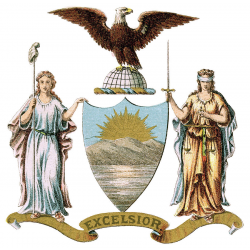
For our 2024 rankings, the research team at Nursing Schools Almanac collected data on nearly 3,000 nursing schools and campuses throughout the United States. We evaluated each school on three dimensions:
- The institution’s academic prestige and perceived value
- The breadth and depth of nursing programs offered
- Student success, particularly on the NCLEX licensure examination
We then combined these assessments into an overall score and ranked the schools accordingly. For a detailed description of our assessment methodology and dimension weights, please see here.
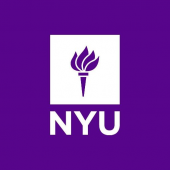
#1: New York University
U.S. News & World Report consistently ranks the adult-gerontology nurse practitioner programs at NYU Rory Meyers College of Nursing among the top ten nationally. The college is also sixth nationally in NIH nursing research funds awarded over the past decade, and NYU Meyers has twice earned a Center of Excellence designation from the National League for Nursing. In its flagship BSN program, the college graduates more than 400 students each year who have passed the NCLEX exam at an 87% first-try rate over the past decade. NYU Meyers also offers an MSN program with nine concentration options, post-master’s advanced certificates in eleven fields, a DNP degree with three entry paths, and a PhD in nursing research and theory development.

#2: Columbia University
As part of Columbia University Irving Medical Center, Columbia Nursing enjoys a unique collaboration with the Vagelos College of Physicians and Surgeons, the Mailman School of Public Health, and the College of Dental Medicine. In fact, Columbia is one of eight nursing schools in the nation associated with a major academic medical center. Since its establishment in 1892, Columbia Nursing has graduated approximately 12,000 nurses. The school has a history of innovation: it launched the first master’s degree in clinical nursing in 1956, and it recently introduced a fifteen-month direct-entry MSN program for non-nurse college graduates. Columbia Nursing is proud to boast 38% ethnic diversity.
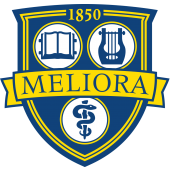
#3: University of Rochester
The University of Rochester School of Nursing prides itself on innovation in nursing education, including the country’s first acute care nurse practitioner program and its first center for nursing entrepreneurship. The school’s most recent initiative is its Council for Diversity, Equity, and Inclusion, which has helped Rochester to earn four consecutive Health Professions Higher Education Excellence in Diversity (HEED) awards. Over the past decade, 92% of students in the accelerated BSN program have passed the NCLEX licensure exam on their first try. The school also provides an online RN-to-BSN, an MSN with nine specialty tracks, a DNP with post-baccalaureate and post-master’s entry points, and a PhD in nursing and health science. Nursing students have access to the university’s state-of-the-art Clinical and Educational Resource Center as well as a 52-bed neonatal intensive care unit.
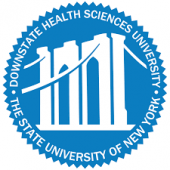
#4: SUNY Downstate Health Sciences University
SUNY Downstate College of Nursing enrolls more than 350 students across nearly a dozen program offerings. Baccalaureate students have two options: a second-degree accelerated BSN and an RN-to-BSN completion program. The accelerated BSN program graduates 50-75 students annually, with a strong 92% first-time NCLEX pass rate over the past decade. Graduate students can select from three MSN specializations (family nurse practitioner, nurse-midwifery, women’s health nurse practitioner) and three advanced certificates (family nurse practitioner, nursing education, women’s health primary care nurse practitioner). SUNY Downstate also recently launched a DNP program that offers both a post-master’s track and two post-baccalaureate tracks (family nurse practitioner, women’s health nurse practitioner).
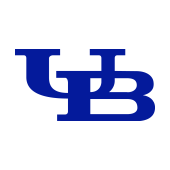
#5: University at Buffalo
University at Buffalo’s School of Nursing has educated nurses for over 75 years. The school provides a traditional BSN, accelerated BSN, RN-to-BSN bridge, master’s in nursing leadership, DNP program, and PhD program. The latter two are available in a distance learning format. The university graduates about 120 new nurses from its BSN program each year, and these students have passed the NCLEX exam at a 91% rate over the past ten years. UB School of Nursing students can access a varied list of clinical partners including a major cancer center, several comprehensive healthcare providers, a hospice center, and a veterans’ medical center.
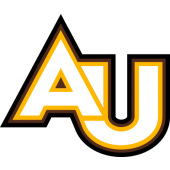
#6: Adelphi University
With more than seventy years of nursing education experience, the Adelphi College of Nursing and Public Health has twice been designated a Center of Excellence by the National League for Nursing. The college currently enrolls over 1,000 undergraduates and approximately 150 graduate nurses. Adelphi students benefit from small class sizes and strong collaboration with faculty. Approximately 250-350 BSN students sit for the NCLEX exam each year, and they have scored a 78% first-time pass rate over the past decade. The college also prides itself on the fact that approximately 90% of Adelphi master’s degree students gain employment within a year of graduation.

#7: Hunter College
Hunter-Bellevue School of Nursing (HBSON) offers three undergraduate programs: a traditional BSN, an accelerated second-degree program, and an RN-to-BSN bridge. It also provides six MSN specialization tracks, a post-master’s certificate in psychiatric-mental health, and a DNP program. The school graduates 90-130 BSN students annually, who have passed the NCLEX exam at a solid 88% rate over the past ten years. With an aim to provide care in culturally diverse communities, HBSON has supported nursing education initiatives in Haiti and introduced a Global Health Nursing elective at the undergraduate level.
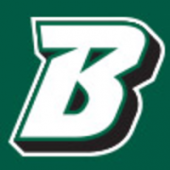
#8: Binghamton University
Since its establishment in 1969, the Decker School of Nursing (DSON) has earned a reputation for its baccalaureate, master’s, and doctoral nursing programs in the state of New York. DSON graduates 150-200 BSN students each year that have passed the NCLEX exam at a rate of 86% over the last decade. The school provides its nursing students with intensive clinical experiences and state-of-the-art facilities. Students complete hundreds of clinical rotation hours in acute care and community settings, and they also enjoy access to DSON’s Simulation and Practice Center.
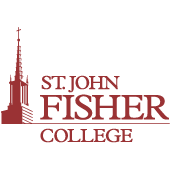
#9: St. John Fisher College
The Wegmans School of Nursing recently launched three new MSN specializations with an eye on the healthcare needs of the Rochester community: adult-gerontology primary care, adult-gerontology acute care, and psychiatric-mental health. The graduate nursing department also offers an M.S. in Mental Health Counseling and a Doctor of Nursing Practice, while the undergraduate department leads traditional BSN and online RN-to-BSN programs. Wegmans’ BSN students have passed the NCLEX exam at a solid 93% rate over the past decade.
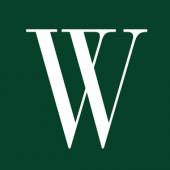
#10: Wagner College
In 2012, the Evelyn L. Spiro School of Nursing earned a coveted COE designation from the National League for Nursing. The school offers a traditional BSN, second-degree BSN, and RN-to-BSN completion program at the undergraduate level. It also offers MSN tracks for aspiring nurse educators and family nurse practitioners, a post-master’s FNP certificate, and a DNP program. Wagner produces more than 100 new BSN-educated nurses each year, and these graduates have passed the NCLEX exam at rates as high as 94% in recent years. Students learn at the Nursing Resource Center, which has a well-equipped high-fidelity simulation lab and a general skills lab.
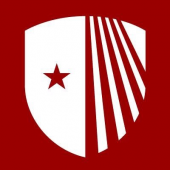
#11: Stony Brook University
At Stony Brook University’s School of Nursing, all graduate-level and online classes are recorded and archived, allowing students to access lecture materials at their convenience. Not surprisingly, Stony Brook’s online MSN program consistently ranks highly according to U.S. News & World Report. The school annually sits 100-160 BSN students for the NCLEX exam, and they have passed at a strong 92% rate over the past decade. Stony Brook also offers a wide breadth of graduate nursing programs, including nine MSN / advanced certificate tracks and a Doctor of Nursing Practice.
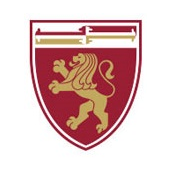
#12: Molloy College
Molloy College graduates a BSN class of approximately 300 students each spring, the second-largest such cohort in the entire state (after NYU). Molloy students perform well on their licensure exams, passing at a 92% first-time rate over the last four years. The college also offers a BSN degree completion program for RNs, as well as a unique dual-degree option that enables students to enroll in both undergraduate and graduate courses simultaneously. At the graduate level, Molloy offers seven distinct MSN tracks, nine post-master’s nursing certificates, and a highly regarded nursing PhD program.
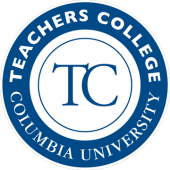
#13: Teachers College, Columbia University
Columbia University’s Teachers College has trained nurse education leaders since 1899. The college conducts programs for MSN-prepared and advanced practice nurses through its Department of Health & Behavior Studies. Teachers College’s doctor of education (EdD) in nursing education has a curriculum designed by nursing education experts and approved by the State of New York as an online offering. Doctoral students who would like clinical expertise in diabetes management may take advantage of the school’s diabetes education and management curriculum. The school also offers a five-course advanced certificate in nursing education specifically designed for doctorally prepared nurses.
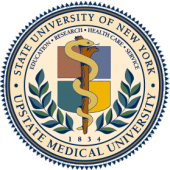
#14: Upstate Medical University
Upstate Medical University’s College of Nursing strives to meet the needs of RNs in the Syracuse and Central New York area. In 1959, to address the region’s nursing shortfall, Upstate Medical University launched an ADN program that educated more than 500 registered nurses over the next two decades. Today, Upstate Medical University is one of the longest-established upper-division nursing schools in the region. It offers an RN-to-BSN degree completion program, three MSN tracks, two post-master’s advanced certificates, and a part-time MSN-to-DNP program.
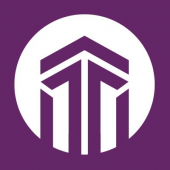
#15: Excelsior University
The School of Nursing at Excelsior University has been designated a Center of Excellence in Nursing Education by the National League for Nursing four consecutive times. The university’s online nursing degree programs include ADN, BSN, and MSN pathways. The ADN program is a prelicensure curriculum designed for practical nurses, vocational nurses, paramedics, and certain classifications of active duty military, National Guard, and Reserves personnel. This bridge program graduates more than 1,000 students annually, with approximately an 80% first-time NCLEX pass rate over the past decade. Excelsior’s RN-to-BSN program is a 121-credit-hour offering that can award students up to 61 credits for prior coursework and licensure examination completion. The university’s MSN students may pursue a specialization in education, informatics, or leadership and administration of healthcare systems.
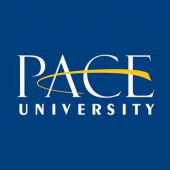
#16: Pace University
The Lienhard School of Nursing (LSN) at Pace University’s College of Health Professions offers its students learning opportunities by partnering with many well-known primary, acute, and tertiary care facilities and community agencies. LSN’s small class sizes ensure greater faculty attention, enabling BSN students to pass the NCLEX exam at a 90% rate over the past ten years. Across its two campuses in Pleasantville and New York City, LSN offers traditional and accelerated BSN programs for undergraduates as well as a variety of graduate degree and certificate programs.
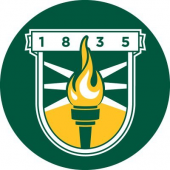
#17: SUNY Brockport
The Department of Nursing at SUNY Brockport offers three undergraduate pathways: a traditional BSN, a fast-track RN-to-BSN, and a second degree option. The most unique program is the fast-track RN-to-BSN, which may be completed 100% online. Students have the option to complete their clinical experiences within their own communities and regions, or they may opt to take advantage of international experiences in Peru and Costa Rica. Most nurses complete the program in 30-36 credits over 12 months full-time or 18-24 months part-time. In the school’s prelicensure BSN programs, approximately 100 students graduate each year and they achieve strong marks on their licensure exams, with an 89% pass rate over the past decade. At the graduate level, SUNY Brockport offers MSN and certificate of advanced standing (CAS) programs for aspiring family nurse practitioners. The university also recently launched a post-master’s DNP program, which enables FNPs to earn their clinical doctorate 100% online.

#18: Hofstra University
Hofstra University houses more than a dozen colleges and schools that serve over 10,000 students across 300 degree programs. The Hofstra Northwell School of Nursing and Physician Assistant Studies offers a traditional prelicensure BSN program as well as a full suite of graduate programs for professional nurses seeking career advancement. The school provides top-tier clinical experiences through a large network of sites. Students conduct simulation laboratory activities at the Patient Safety Institute, interact with standardized patients at the Clinical Skills Center, and practice hands-on procedural skills at the Bioskills Education Center. The school offers three nurse practitioner specialties – adult-gerontology acute care, family, and psychiatric-mental health – across its MSN, advanced certificate, and DNP programs, as well as a unique Registered Nurse First Assistant Advanced Certificate. Hofstra Northwell nursing students have enjoyed perfect 100% graduation and employment rates.
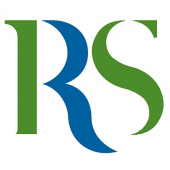
#19: Russell Sage College
The Department of Nursing at Russell Sage College will soon celebrate 100 years of educational excellence. Sage offers baccalaurreate, master’s, and doctoral degree programs in nursing. The BSN curriculum has two pathways: a prelicensure program for students new to nursing, and an RN-to-BSN completion program for nurses who hold an associate degree. Students in the prelicensure program take 60 credits in the arts and sciences, including 36 credits of general education requirements. The nursing major then includes 54 nursing credits and 27 credits of required support courses. Russell Sage College’s undergraduates have averaged a solid 82% first-time pass rate on the NCLEX exam over the past decade. Graduate students may pursue an MSN degree in three nurse practitioner fields (adult-gerontology, family, psychiatric-mental health), nurse education, or nurse administration. The college also leads a cohort-based doctor of nursing science (DNS) program that complements an online learning format with three weekend campus visits per semester.
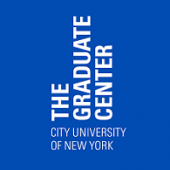
#20: The Graduate Center, CUNY
The Graduate Center at The City University of New York offers a PhD program for nurses that hold a master’s degree in nursing from an accredited school. The PhD program – formerly called a doctor of nursing science, or DNS – is composed of 49 post-master’s credits with no clinical component, as these courses would have been completed at the master’s level. Sample courses for the program include Applied Statistics, Bioethics, and Nursing Care Perspectives to Eliminate Health Disparities. In years one and two of the program, students will complete twenty hours of required courses each year. In the third year, students will complete nine hours of required coursework, and in the fourth year, students will complete and defend their dissertation.
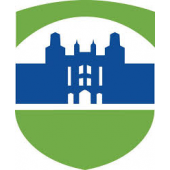
#21: Lehman College
The Department of Nursing at Lehman College is part of the School of Health Sciences, Human Services, and Nursing. The department offers three undergraduate nursing pathways including a generic BSN, an accelerated BSN, and an online RN-to-BSN program. Over the past decade, prelicensure BSN graduates have achieved a noteworthy 81% first-time pass rate on the NCLEX-RN exam. At the graduate level, Lehman College offers two MSN specializations (family nurse practitioner, pediatric nurse practitioner) and four post-master’s certificates (FNP, PNP, nursing education, nursing administration). In the fall of 2020, the college launched the Bronx’s first DNP program.
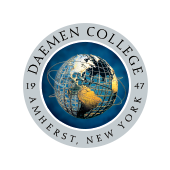
#22: Daemen College
The nursing department at Daemen College partners with local community colleges to deliver an innovative 1+2+1 curriculum. This unique program confers both an ADN and a BSN degree in only four years of study, and it enables students to work as a registered nurse after just their third year. The college also offers a traditional RN-to-BSN bridge, a DNP program, and three MSN tracks in adult-gerontology primary care, nursing executive leadership, and nursing education. Daemen’s nursing department strives to integrate several methods of instruction, including traditional classroom, distance education, hybrid, and online.

#23: D’Youville College
The School of Nursing at D’Youville College offers degree programs at the BSN, MSN, and DNP levels. Prelicensure BSN graduates have achieved approximately a 79% first-time pass rate on the NCLEX exam over the past decade. The MSN program features specialty tracks in four areas: family nurse practitioner (FNP), nursing education with a clinical focus, nursing management and quality leadership, and psychiatric mental health nurse practitioner (PMHNP). The DNP program also offers FNP and PMHNP specializations. Working nurses who already hold an MSN degree may apply to the advanced certificate program, which offers FNP and PMHNP options plus a certificate in nursing and health-related professions education.
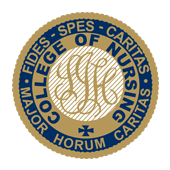
#24: St. Joseph’s College of Nursing
St. Joseph’s College of Nursing was founded in 1898 by the Sisters of St. Francis. Over the past 120 years, the college has produced more than 4,000 newly minted nurses, with 120-150 new graduates joining their ranks each year. St. Joseph’s offers a number of tailored pathways to the nursing profession, including a traditional two-year weekday ADN and an accelerated 18-month evening / weekend program. The school has also designed a dual degree partnership in nursing (DDPN) option with Le Moyne College, awarding both an associate degree and a baccalaureate degree in four years over a 1+2+1 class schedule. St. Joseph’s students have earned a stellar NCLEX pass rate of 93% over the past decade. Graduates are given transfer consideration into the RN-to-BSN programs of more than a dozen local and online nursing colleges.
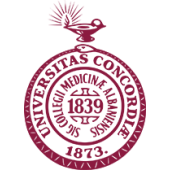
#25: Albany Medical College
Albany Medical College’s Center for Nurse Anesthesiology offers a doctor of nursing practice degree that prepares graduates to begin work immediately at hospitals and other healthcare facilities. During the first year of the program, students complete coursework in basic sciences, research, nurse anesthesia practice, and clinical practicum laboratories. In the second and third years, students continue the clinical practicum laboratories and nurse anesthesia courses; they also complete board preparation coursework and a clinical residency. Albany Medical College’s most recent graduating class of 27 students enjoyed an 81% second-time pass rate on the national certification examination and a perfect 100% employment rate within six months of graduation.
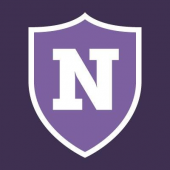
#26: Nazareth College
Nazareth College has three pathways to a BSN degree: a traditional undergraduate program, an LPN-to-BSN bridge, and an RN-to-BSN completion program. Nazareth offers its students the unique opportunity to study and work overseas. For example, the college offers a Belize service-learning project that takes place over spring break, pairing students with residents of Octavia Waight Centre, a nursing home in San Ignacio. The college also offers a Finland study abroad program that takes place over one or two semesters; the two-semester option makes students eligible for a dual degree and for licensure in the European Union. Nazareth College students have achieved a stellar 97% first-time pass rate on the NCLEX-RN licensure exam over the past four years.
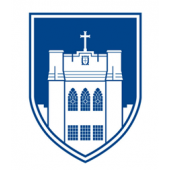
#27: Mount Saint Mary College
Mount Saint Mary College offers five pathways in nursing including a traditional BSN, an adult degree completion program, an LPN-to-BSN bridge, an RN-to-BSN bridge offered in a hybrid on-site / online model, and an MSN degree. The traditional BSN is a four-year program for students with no prior nursing education, while the adult degree completion program is an evening and weekend program designed especially for adult learners. The bridge programs are designed for existing LPNs and RNs who wish to advance their nursing education in a streamlined manner. Across prelicensure pathways, BSN students have averaged an 86% first-time pass rate on the NCLEX exam during the past decade. Mount Saint Mary’s MSN degree prepares nurses to enter the healthcare arena as nurse practitioners.
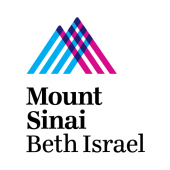
#28: Phillips School of Nursing
An integral part of Mount Sinai Health System, the Phillips School of Nursing is one of just 62 schools nationwide deemed a Center of Excellence by the National League for Nursing. PSON offers two distinct BSN pathways: an accelerated program for baccalaureate degree-holders from a non-nursing discipline, and an RN-to-BSN completion program for nurses with an associate degree or diploma. Each program is designed for completion in just 15 months of fulltime study. PSON graduates have passed the NCLEX-RN licensure exam at an 84% first-try rate since the program’s launch, frequently exceeding both the state and national averages. The school recently relocated to a new facility in Manhattan’s East Harlem neighborhood, featuring more than 35,000 square feet of classroom, laboratory, and simulation space.
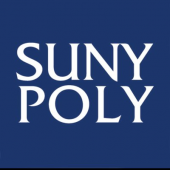
#29: SUNY Polytechnic Institute
SUNY Polytechnic Institute offers several innovative pathways for nursing students. The school’s 1+2+1 partnership with St. Elizabeth College of Nursing (SECON) enables students to complete two nursing degrees – an ADN from SECON and a BSN from SUNY Poly – in four years, all while living on the SUNY Poly campus. The school’s two-year RN-to-BSN program is now offered online beginning with the 2018 fall semester. SUNY Poly also offers an accelerated BSN/MSN program with specializations in family nurse practitioner and nursing education, as well as certificates of advanced study in both fields.

#30: College of Staten Island
The College of Staten Island, part of the vast City University of New York, offers a breadth of nursing programs across all degree levels. Undergraduate options include ADN and RN-to-BSN programs. The undergraduate curriculum combines science, humanities, and nursing coursework with supervised clinical experiences and the opportunity to practice nursing skills in state-of-the-art laboratories, including a high-fidelity simulation center. Over the past decade, ADN graduates have achieved a solid 83% first-time pass rate on the NCLEX-RN licensure exam. At the graduate level, CSI offers an MSN degree with two adult-gerontological specializations (clinical nurse specialist, primary care nurse practitioner) and two doctoral programs (DNP, PhD in nursing).
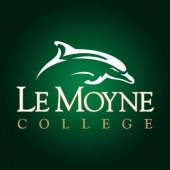
#31: Le Moyne College
The Department of Nursing at Le Moyne College has four undergraduate pathways, including two dual-degree partnerships with St. Joseph’s College of Nursing and two degree completion programs. The core dual-degree partnership with St. Joseph’s is designed for high school graduates who want to study nursing when they enter Le Moyne College as freshmen. The accelerated version is for students who already hold a bachelor’s degree in a non-nursing field. Le Moyne’s degree completion pathways enable both RN-to-BSN and RN-to-MSN progressions. At the graduate level, Le Moyne offers a traditional MSN program with tracks in family nurse practitioner, nursing education, and nursing administration.
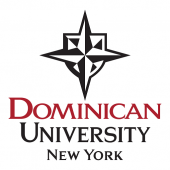
#32: Dominican University New York
Dominican University New York offers a breadth of undergraduate nursing pathways including a traditional four-year BSN, two accelerated prelicensure programs, and several RN-to-BSN options. The traditional daytime BSN is designed for LPNs and students with no nursing experience. It follows a conventional semester format, meeting five days per week. The weekday accelerated BSN program can be completed in just 12 months, and the weekend accelerated BSN in just 24 months, by utilizing a back-to-back trimester format. The university’s traditional and accelerated BSN students have passed the NCLEX licensure exam at a 72% first-try rate over the past decade. Nursing classes for the unique accelerated RN-to-BSN program are sequenced on Wednesdays only within an 18-month period. Select courses for the program are offered in a hybrid or online format. Dominican University New York also offers two graduate nursing programs: an MSN degree for aspiring family nurse practitioners and a post-master’s DNP degree. Each program is designed for working professionals to complete with two years of part-time study, utilizing a hybrid mix of weekday evening classes and online study.
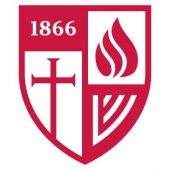
#33: Roberts Wesleyan College
The School of Nursing at Roberts Wesleyan College offers three nursing programs: a traditional BSN, an RN-to-BSN bridge pathway, and an MSN degree. The traditional BSN program is for students who are new to the nursing field. Over the past decade, approximately fifty students have graduated from the traditional BSN program each year, scoring an average first-time NCLEX pass rate of 80%. The RN-to-BSN bridge program is designed for working RNs with an ADN degree who wish to complete their baccalaureate education in a streamlined manner. The MSN program allows entry to BSN-educated nurses, with focal areas in both leadership / administration and nursing education.
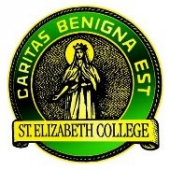
#34: St. Elizabeth College of Nursing
St. Elizabeth College of Nursing (SECON) was founded in 1904 as a single-purpose three-year diploma program in registered nursing. The college now prepares aspiring RNs through a comprehensive two-year AAS degree. Through SECON’s innovative 1+2+1 partnership with SUNY Polytechnic Institute, qualified high school graduates can earn both the associate degree and a BSN degree in just four years. The college boasts excellent student outcomes: over the past decade, SECON graduates have passed the NCLEX licensure exam at an 89% overall rate. Recent graduating classes have also achieved as high as an 89% employment rate within six months of program completion.
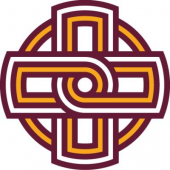
#35: Iona College
Iona College entered nursing education with its 2021 acquisition of the 28-acre Bronxville campus formerly operated by Concordia College New York. As part of the transition, Iona College is building upon Concordia’s existing BSN program to launch the New York-Presbyterian School of Health Sciences. The BSN program offers traditional four-year and accelerated second degree tracks, with clinical rotations and fulltime employment opportunities after graduation at New York-Presbyterian Hospital. This major academic healthcare system is affiliated with two Ivy League medical schools: Weill Cornell Medicine and Columbia University’s Vagelos College of Physicians and Surgeons. BSN graduates are extremely well prepared for the NCLEX-RN licensure examination. Over the past decade, students from Iona College and its Concordia College New York predecessor have averaged an impressive 94% first-time NCLEX pass rate.
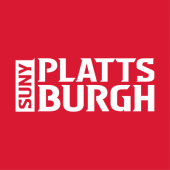
#36: SUNY Plattsburgh
The Department of Nursing at SUNY Plattsburgh has two pathways for nursing students: a traditional freshman-entry BSN program and an online RN-to-BSN program. The freshman-entry BSN program requires four years of general education and professional studies. In addition to covering the natural, biological, and behavioral sciences, the program includes applied learning and clinical experiences. Over the past decade, traditional BSN students have achieved a notable 90% pass rate on the NCLEX-RN licensure exam. The online RN-to-BSN program is specifically designed for students who have completed their ADN or diploma in nursing and are licensed RNs. A clinical coordinator works with online students to find appropriate clinical experiences in their region.
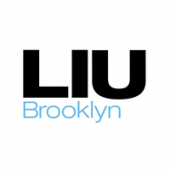
#37: LIU Brooklyn
The Harriet Rothkopf Heilbrunn School of Nursing at LIU Brooklyn offers both undergraduate and graduate nursing programs. The BSN program has three tracks: full-time day, part-time evening / weekend, and accelerated second degree. The accelerated track is a 16-month program for students who already hold a bachelor’s degree in another field, with admission in the spring, summer, and fall. LIU Brooklyn graduates 200-300 students annually across all BSN tracks. These students have passed the NCLEX licensure exam at a 77% first-time rate over the past decade, and they typically enter the field within three to six months of program completion. Graduate programs include a BSN/MSN executive program for nursing & healthcare management, and an MSN degree with three concentrations (family nurse practitioner, adult nurse practitioner, nurse educator).
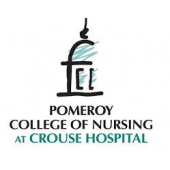
#38: Pomeroy College of Nursing
Located in the heart of Syracuse’s University Hill area, the Bill and Sandra Pomeroy College of Nursing offers a two-year associate degree program in nursing. Classes are conducted at the Harry and Lillian Marley Education Center, a high-tech facility located directly across from Crouse Hospital. The school’s vibrant curriculum includes a cross-cultural healthcare immersion program in Guatemala. Pomeroy students have performed very well on the national licensure examination, posting a 90% NCLEX pass rate over the past decade. The school continues to innovate, recently launching an early assurance option for graduates to transfer seamlessly into the Le Moyne College RN-to-BSN program. Pomeroy also began offering an accelerated 18-month pathway with evening and weekend classes in January 2017.
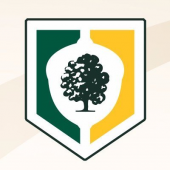
#39: Keuka College
Keuka College has joined forces with Finger Lakes Health College of Nursing and Health Sciences (FLHCON) to offer a dual degree program. Enrollees will earn an AAS degree from FLHCON and a BSN degree from Keuka. Students in this exclusive program benefit from state-of-the-art facilities at Keuka, FLHCON, and Geneva General Hospital. In addition, they gain hands-on experience through Field Period which features local and overseas trips to explore various nursing roles. Keuka College also offers a hybrid RN-to-BSN pathway, an MSN degree with tracks in nursing education and adult / gerontology primary care nurse practitioner (AGPCNP), and an AGPCNP post-master’s certificate. The MSN in nursing education includes a self-selected internship that provides hands-on experience in classroom and clinical instruction.
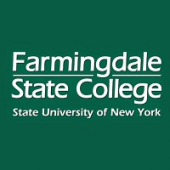
#40: Farmingdale State College
Farmingdale State College provides three pathways to a BSN degree: generic, transfer, and RN-to-BSN. The generic BSN is a traditional four-year program that consists of 126 credits. The transfer BSN is an advanced standing program that takes only three years to complete. The RN-to-BSN pathway requires just 62 additional college credits beyond the ADN degree. Over the past decade, graduates have scored a 94% first-time pass rate on the NCLEX licensure examination, including a perfect 100% pass rate in 2020.
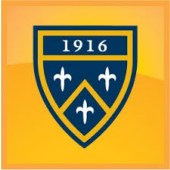
#41: St. Joseph’s College
St. Joseph’s College conducts its nursing programs across two convenient campus locations in the Clinton Hill area of Brooklyn and the Patchogue region of Long Island. At the undergraduate level, St. Joseph’s offers a traditional four-year BSN program for students entering the nursing field, as well as a blended RN-to-BSN program for RNs seeking career advancement. The baccalaureate curriculum features innovative courses like Adults in Transition, Group Dynamics & Communication, Relationship-Centered Care, and Way of Being. The college also offers an MSN program with three concentrations: adult-gerontology clinical nurse specialist, adult-gerontology primary care nurse practitioner, and nursing education. Graduate students may also earn an online certificate in management of health information systems.
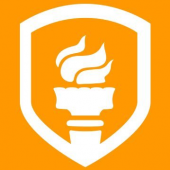
#42: SUNY Empire State College
SUNY Empire State College employs 165 fulltime faculty members that serve more than 10,000 adult learners, both through a robust online platform and at 35 onsite locations across New York State. Associate and bachelor’s degrees are offered in twelve areas of study, while graduate programs are available in eleven areas. The School of Nursing and Allied Health has both undergraduate and graduate pathways for nurses seeking career advancement. Specific options include an RN-to-BSN degree completion program, an MSN degree with nursing administration and nursing education tracks, and an advanced certificate in nursing education. SUNY Empire State College has also partnered with Nassau Community College to provide an ADN/BSN dual degree pathway for the residents of Nassau County. The baccalaureate and master’s degree nursing programs at SUNY Empire State College are fully accredited by the Commission on Collegiate Nursing Education.
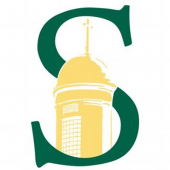
#43: Siena College
Siena College’s Baldwin Nursing Department and Ellis Medicine’s Belanger School of Nursing offer two pathways for aspiring nurses: the dual ADN/BSN and the RN-to-BSN. The dual ADN/BSN allows students to earn two degrees through one seamless program. Students have the opportunity to learn on both campuses while spending all four years living at Siena. The RN-to-BSN features small class sizes, a caring science curriculum, state-of-the-art health assessment and simulation labs, and a convenient cohort approach to learning. This program can be completed in as little as 24 months, or in just 16 months for students who already have a bachelor’s degree in another field.
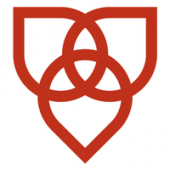
#44: Samaritan Hospital School of Nursing
Samaritan Hospital School of Nursing offers both a certificate in practical nursing and an associate degree in professional nursing. Samaritan’s facilities include state-of-the-art classrooms, library, and skills labs. Every nursing course has a clinical component, so students have continuous opportunities to apply their classroom learning under the guidance of expert nurse educators. The school also offers a breadth of clinical experience settings including acute care, rehabilitation, and outpatient surgery. The LPN program graduates a small cohort of 10-20 students annually, while the ADN program graduates approximately sixty students each year. Graduates of both programs have a strong track record on their respective licensure exams. LPN students posted a 92% first-time pass rate on the NCLEX-PN exam over the past decade, while ADN students achieved a 93% first-time pass rate on the NCLEX-RN exam during that timeframe.
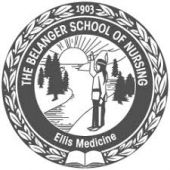
#45: Belanger School of Nursing
The Belanger School of Nursing, formerly known as the Ellis School of Nursing, was one of the first schools in the state to receive a permanent charter in 1917. This hospital-based school offers an associate degree in professional nursing conferred by the Ellis Medicine Board of Trustees. The 64-credit-hour curriculum focuses primarily on care for hospitalized patients, with an emphasis on clinical practice. Students typically complete the program in four semesters of fulltime study. The Belanger School of Nursing graduates approximately 50 students annually. These graduates have achieved an impressive 87% NCLEX pass rate over the past decade. They can also take advantage of the school’s BSN articulation agreements with ten highly regarded colleges and universities, which include a mix of Capital District campuses and online programs.
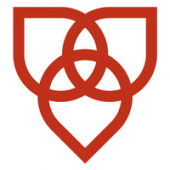
#46: St. Peter’s Hospital College of Nursing
St. Peter’s Hospital College of Nursing is located on the campus of Maria College and affiliated with St. Peter’s Health Partners. Students have access to clinical experiences in a variety of settings including daycare centers, hospitals, nursing homes, physicians’ offices, and rehabilitation centers. The college’s ADN program is offered fulltime or part-time with both fall and spring start dates. Graduates of the program are prepared for immediate employment in the field. They can also take advantage of the college’s BSN articulation agreements with several area colleges including Maria College, Russell Sage College, SUNY Delhi, SUNY Plattsburgh, and SUNY Polytechnic Institute. St. Peter’s Hospital College of Nursing graduates 40-60 ADN students annually. Over the past decade, these graduates have averaged a strong 93% first-time pass rate on the NCLEX-RN licensure exam.
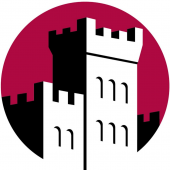
#47: Manhattanville College
Manhattanville College is a small, private, liberal arts institution that provides 45 undergraduate majors and minors, as well as 75 graduate degrees and advanced certificates. The School of Nursing and Health Sciences offers two BSN pathways – traditional four-year and accelerated second degree – as well as an MSN degree with a family nurse practitioner focus. The BSN curriculum features several unique enhancements, including end-of-life care certification and the opportunity to earn digital badges through specialized electives. The program also incorporates clinical rotations at top local healthcare facilities. The MSN curriculum trains licensed RNs to deliver primary care to families in a variety of healthcare settings.
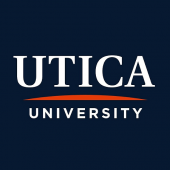
#48: Utica University
Utica University’s undergraduate nursing major has three flexible study options: a traditional four-year BSN, an accelerated BSN for non-nursing bachelor’s degree-holders, and an RN-to-BSN for nurses who already hold an associate degree. The 16-month accelerated BSN program blends online coursework with hands-on lab simulations and clinical rotations. It is offered through Utica’s learning sites in Syracuse, New York; St. Petersburg, Florida; and Miramar, Florida. Since the launch of the accelerated BSN program, graduates from the Syracuse learning site have achieved an impressive 90% first-time pass rate on the NCLEX licensure examination. At the graduate level, Utica University’s Nursing Department offers an MSN degree with family nurse practitioner, nursing education, and nursing leadership tracks. Each specialization is also available as a post-master’s certificate.
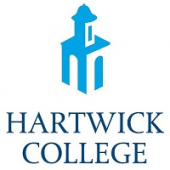
#49: Hartwick College
Hartwick College offers a variety of pathways to a BSN degree, including programs for high school graduates, transfer students, nurses with an ADN, and non-nurses who hold a bachelor’s degree in another field. The school’s four-year BSN program provides traditional students with direct exposure to clinical settings by the end of the first semester. For non-nursing baccalaureate degree-holders, Hartwick offers both an 18-month accelerated BSN and an accelerated summer BSN, known as the Rural Nursing Opportunities Program. Across these prelicensure pathways, Hartwick College graduates between forty and sixty BSN students annually. These graduates have averaged an 86% first-time NCLEX pass rate over the past decade, with a stellar 97.6% pass rate in 2018.
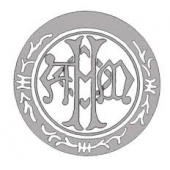
#50: Arnot Ogden Medical Center School of Nursing
On September 1, 1889, the Arnot Ogden Memorial Hospital Training School of Nurses welcomed a freshman class of three. In the intervening 130 years, the school has educated more than 2,400 professional nurses. Students in the two-year associate degree program interact directly with patients during clinical rotations at Arnot Ogden Medical Center. Graduates are prepared to assume an entry-level nursing position or to enroll in an advanced practice degree program. The Arnot Ogden Medical Center School of Nursing admits a maximum of thirty students per cohort. Over the past decade, these students have enjoyed a solid 86% first-time pass rate on the NCLEX-RN licensure examination.

#51: Marion S. Whelan School of Practical Nursing
The Marion S. Whelan School of Practical Nursing is one of only three hospital-based practical nursing programs in New York State. In addition to classroom instruction, students gain almost 500 hours of clinical experience in acute and long-term care settings. Observational experiences may be conducted in several departments of Finger Lakes Health including the child care center, diagnostics, the dialysis center, and surgical services. There is also a rotation in home healthcare. Students can expect to complete the LPN program in one year of fulltime study. The Marion S. Whelan School of Practical Nursing typically graduates 15-25 students annually. These graduates have averaged a 92% first-time NCLEX pass rate over the past decade, including several years – most recently 2018, 2019, and 2020 – with a perfect 100% pass rate.
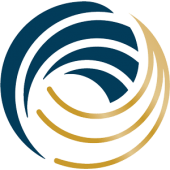
#52: Pacific College of Health and Science
Pacific College of Health and Science offers several online programs designed for working nurses. The RN-to-BSN program requires a minimum of 31.5 credits to complete. Online coursework is complemented by a three-day onsite retreat and the option to complete clinical requirements in the student’s hometown. Sample courses include Nursing Issues and Trends, Psychoneuroimmunology, and Nurse as Facilitator of Healing. Pacific College also offers an online certificate in holistic nursing. This post-baccalaureate program provides a broader view on healing through disease prevention and maintenance, self-care techniques, integrative holistic modalities, and quality-of-life improvements. Finally, Pacific College launched an online MSN degree in the fall of 2021. The curriculum provides students an even deeper grounding in the principles and practice of holistic nursing.
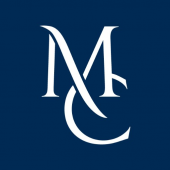
#53: Mercy College
The School of Health & Natural Sciences at Mercy College has three nursing programs: a traditional four-year BSN, an RN-to-BSN pathway offered online or on-campus, and a 15-month MSN program with tracks in nursing administration and nursing education. Nursing administration MSN students must complete a 120-hour practicum which places them with a preceptor or mentor in an administrative area. Nursing education MSN students are prepared to use innovative technology in the planning, implementation, and delivery of educational programs. Clinical nursing experiences for all programs are conducted in a state-of-the-art simulation laboratory as well as traditional, hands-on, instructor-supervised training in Westchester County and New York City healthcare facilities.

#54: York College
The Department of Nursing at York College offers a generic BSN program and an RN-to-BSN program. The generic BSN provides all general education and professional coursework in preparation for the NCLEX-RN licensure exam. York College’s generic BSN students have achieved an 88% first-time NCLEX pass rate since the program’s inception, including a perfect 100% pass rate in 2017 and 2019. The RN-to-BSN completion program is exclusively designed for ADN- or diploma-educated RNs who wish to complete a baccalaureate degree. Both BSN pathways prepare a generalist nurse to deliver professional nursing care in a variety of settings, with a focus on primary interventions like disease prevention and health maintenance. Students are also prepared for graduate-level nursing study.
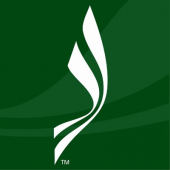
#55: SUNY Delhi
SUNY Delhi prepares nurses at several educational levels. Undergraduate options include a two-year ADN program with multiple entry points, a dual degree ADN/BSN program that features simultaneous enrollment, and an online RN-to-BSN program for working registered nurses. Students in the ADN program have averaged an 82% first-time NCLEX pass rate over the past decade, while dual degree students have scored an 87% first-time NCLEX pass rate since the program’s launch. At the graduate level, SUNY Delhi offers an MSN degree with tracks in nursing administration and nursing education, both available online.
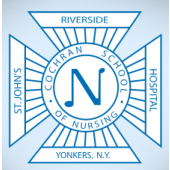
#56: Cochran School of Nursing
Founded in 1894 at St. John’s Riverside Hospital, Cochran School of Nursing is the oldest nursing school in Westchester County and the oldest hospital-based nursing school in the metropolitan region. CSN offers a prelicensure AAS degree program in professional nursing. Prerequisite courses, corequisite courses, and tutorial services are provided through Mercy College in nearby Dobbs Ferry. CSN also has an RN-to-BSN articulation agreement with Mercy College as well as Excelsior University, Chamberlain University, and SUNY Delhi. The school offers very flexible scheduling, with both day and night classes and both spring and fall admissions. It also boasts three human patient simulators on campus and clinical affiliations with the best hospitals in Westchester County. CSN students have passed the NCLEX licensure exam at a 91% rate over the past five years, well exceeding the state and national averages.
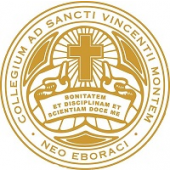
#57: College of Mount Saint Vincent
The College of Mount Saint Vincent’s School of Nursing has traditional BSN, accelerated second degree BSN, and dual BSN/MSN programs. Nursing students complete their clinical placements, externships, and preceptorships at some of New York’s top hospitals. Recent practicum placement sites include Memorial Sloan Kettering Cancer Center, New York-Presbyterian University Hospitals of Columbia and Cornell, and NYU Langone Medical Center. Students also enjoy small class sizes and personalized attention by an assigned advisor. The College of Mount Saint Vincent graduates approximately 150 prelicensure BSN students annually. The class of 2018 scored an 82% first-time pass rate on the NCLEX licensure examination.
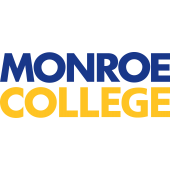
#58: Monroe College
Monroe College offers its three nursing programs in a ladder progression that provides students the flexibility of multiple entry and exit points. The three-semester LPN certificate program progresses from simple to complex concepts within a supportive liberal arts and sciences structure. The three-semester AAS degree is designed specifically for LPNs, with a curriculum that builds on what these students learned during their first year of study. The 15-month RN-to-BSN program prepares nurses for leadership roles by integrating concepts from health administration, public health, and a variety of electives. Monroe College students have performed well on their recent licensure exams, with an 87% NCLEX-RN pass rate and an unbelievable 97% NCLEX-PN pass rate over the past five years.
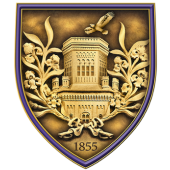
#59: Elmira College
The BSN program at Elmira College provides a foundation of liberal arts and professional education for the practice of nursing. Students take an Introduction to Nursing class during the first term of sophomore year, and they begin clinicals with a Quality and Safety in Nursing class during the second term. The program offers extensive clinical experiences at state-of-the-art facilities in all major specialties, participation in simulated clinical learning experiences at an on-campus nursing simulation center, and an in-depth concentrated hospital clinical field experience with a nurse preceptor. Over the past decade, Elmira’s BSN graduates have achieved a 79% first-time pass rate on the NCLEX-RN licensure examination.
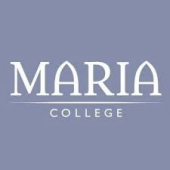
#60: Maria College
Maria College has prepared students for careers in healthcare and service for over sixty years. The college’s nursing programs include a practical nursing certificate, a prelicensure associate degree in registered nursing, and an RN-to-BSN degree completion pathway. The LPN program graduates a small cohort of 15-30 students annually, with a stellar 95% NCLEX-PN pass rate over the past decade. The associate degree program graduates well over 100 students annually, but with similarly strong outcomes. ADN graduates averaged a 90% NCLEX-RN pass rate over the past decade, including an impressive 96% pass rate in 2018. The college’s RN-to-BSN program is conducted on-campus and offered on both a fulltime and part-time basis. Maria College nursing graduates are routinely hired at healthcare facilities throughout the Capital District.
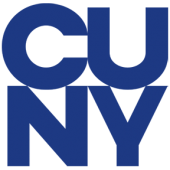
#61: CUNY School of Professional Studies
CUNY School of Professional Studies has several degree pathways for registered nurses at both the undergraduate and graduate levels. Undergraduate options include a traditional RN-to-BSN program, a dual/joint offering with Queensborough Community College, and an accelerated RN-to-BSN/MSN program with tracks in nursing education, informatics, and organizational leadership. All pathways are offered online. At the graduate level, CUNY SPS offers BSN-educated nurses a traditional MSN program with specializations in all three areas noted above. Graduates are prepared for immediate work in management and leadership positions or for admission to a doctoral program.
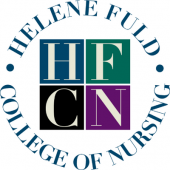
#62: Helene Fuld College of Nursing
Helene Fuld College of Nursing offers three programs for aspiring nurses: a generic BSN, an LPN-to-RN bridge, and an RN-to-BSN completion pathway. The generic BSN, which takes 28 months to complete fulltime, welcomes high school graduates, LPNs, and individuals who hold a degree in a non-nursing field. The LPN-to-RN bridge is a one-year full-time program for LPNs who wish to earn an ADN degree on an accelerated schedule. The RN-to-BSN pathway is designed for licensed registered nurses seeking a bachelor’s degree. This unique program, which focuses on environmental urban health nursing, can be completed in just 19 months fulltime. Four of the past five graduating classes have scored above an 80% first-time pass rate on the NCLEX-RN licensure examination.
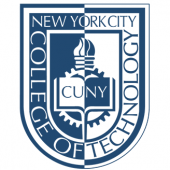
#63: New York City College of Technology
The nursing program at New York City College of Technology offers both ADN and BSN programs. Gerontological nursing and community-based nursing are integrated throughout the ADN curriculum; so too is technology through clinical laboratory simulation and BlackBoard enhancement of all nursing courses. Over the past decade, the college’s approximately 100 annual ADN graduates have achieved an impressive 90% first-time pass rate on the NCLEX-RN licensure exam. Designed for ADN- and diploma-prepared nurses, the BSN is a flexible upper-level program with didactic and clinical courses to meet the educational needs of current RNs. In addition to academic coursework in the classroom, students practice physical assessment skills in a college laboratory setting.

#64: Hunter Business School
Hunter Business School has provided career training programs to adult students for fifty years. The school expanded in 1999 to include healthcare programs such as medical assisting, practical nursing, diagnostic medical sonography, and radiologic technology. The three-semester LPN certificate program requires 1,322 hours of study. Two schedules are available: a daytime option which takes 11 months to complete, and an evening/weekend option which takes 14 months to complete. The program includes 537 hours of clinical experience at local hospitals, clinics, and long-term care facilities. Upon completion of the program, graduates are prepared to sit for the NCLEX-PN licensure examination. Hunter Business School’s LPN program typically graduates about fifty students per year. These students have averaged an 86% first-time NCLEX pass rate since the program’s inception.

#65: Montefiore School of Nursing
Montefiore School of Nursing was established in 1901 as part of Mount Vernon Hospital. The school offers a two-year associate of science degree program in preparation for initial licensure as a registered nurse. Students can select from a day option that admits a new cohort each August and an evening / Saturday option that admits a new cohort each January. Across both options, the school graduates approximately 40-60 students annually. Over the past decade, these graduates have averaged an 83% first-time pass rate on the NCLEX licensure exam, including a 92% pass rate for the class of 2018. At least three consecutive graduating classes have also enjoyed a 100% job placement rate within nine months of licensure. Montefiore School of Nursing maintains articulation agreements with eight colleges that enable its graduates to transition seamlessly into a BSN degree program.
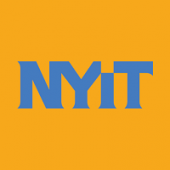
#66: New York Institute of Technology
NYIT’s School of Health Professions boasts an 83% or higher first-time NCLEX pass rate four out of the past seven years, including a stellar 97.7% pass rate during 2016. The school’s BSN program features nearly two dozen partnerships and clinical affiliations, as well as access to high-tech labs and clinical settings. Sample courses for the program include Community Health Nursing, Managerial Concepts and Skills, Nursing Therapeutics, and Transcultural Nursing. The transcultural nursing curriculum provides a holistic approach to team-based patient-centered care, enabling students to treat patients from a wide spectrum of clinical populations and practice settings.

#67: Southern Westchester BOCES
The Southern Westchester Board of Cooperative Educational Services (BOCES) was established in 1948 by the New York State Commissioner of Education and the Board of Regents. Among the school’s approximately twenty adult education offerings is an LPN program with two options: the ten-month day program and the twenty-month evening program. Coursework covers a range of practical nursing topics including medical/surgical care, obstetrics, and the administration of medication. Students also receive hands-on clinical experience in local hospitals, schools, and nursing facilities. The Southern Westchester BOCES graduates 60-90 students annually across the two LPN programs. Over the past decade, these graduates have averaged a solid 85% first-time pass rate on the NCLEX-PN licensure examination.
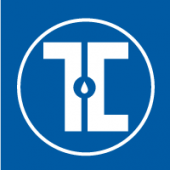
#68: Touro College
The Touro College and University System serves more than 18,000 students across its undergraduate, graduate, and professional schools. The School of Health Sciences offers two CCNE-accredited baccalaureate nursing programs. Traditional college students can pursue a four-year prelicensure BSN at the school’s Brooklyn campus, with nursing coursework commencing during the second year of study. Existing RNs can enroll in the school’s RN-to-BSN completion program, which students typically complete in just one to two years. Touro College offers the RN-to-BSN curriculum at both its Brooklyn campus and the New York Medical College campus in Valhalla. The Brooklyn site features diverse teaching-learning settings including the nursing skills laboratories, which provide a state-of-the-art environment for students to practice clinical skills. The Valhalla site is a convenient option for Westchester Community College’s nursing graduates and other nurses in the community.
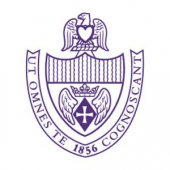
#69: Niagara University
Niagara University has a 160-year history of education in the Vincentian and Catholic traditions. The School of Nursing offers three distinct pathways to a baccalaureate degree. Traditional college students can pursue a four-year plan of study in preparation for initial licensure. Students who already hold a non-nursing bachelor’s degree may enroll in an accelerated program which completes the prelicensure curriculum in just one full calendar year. Finally, registered nurses with an associate degree or diploma can complete their baccalaureate education through the university’s RN-to-BSN degree completion program. The RN-to-BSN program includes a cohort of students each year from Catholic Health System. These nurses represent a number of local institutions including Mercy Hospital of Buffalo, Mount St. Mary’s Hospital, Sisters of Charity Hospital, Mercy Ambulatory Care Center, and McAuley Seton Home Care.
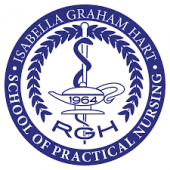
#70: Isabella Graham Hart School of Practical Nursing
The Isabella Graham Hart School of Practical Nursing at Rochester Regional Health offers a ten-month practical nursing program. The school is named in honor of an outstanding benefactress of the hospital. Students in the LPN program benefit from experienced instructors, hands-on training, and facilities equipped with the latest technologies. The school graduates 50-80 students annually. Eight out of the last ten years, these graduates have achieved a first-time pass rate of 87% or higher on the NCLEX-PN licensure examination. Newly licensed LPNs from the Isabella Graham Hart School have access to potential employment opportunities throughout Rochester Regional Health.
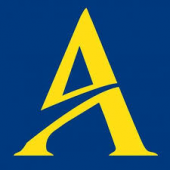
#71: Alfred State College
Alfred State College of Technology is part of the State University of New York system. The college offers a prelicensure ADN program and an online RN-to-BSN program. Courses for the ADN are sequential, progressing from simple to complex situations with specialized content in obstetric, psychiatric, and pediatric nursing. The first year of the program features a clinical experience that requires seven hours per week. The clinical experience increases in time and complexity during the second year, with simulations also incorporated into the laboratory experience. Over the past decade, Alfred State’s ADN graduates have achieved an 81% first-time pass rate on the NCLEX-RN licensure exam. The RN-to-BSN program provides advanced instruction in health assessment and promotion across the lifespan, nursing leadership and management, and population-focused care in the community.
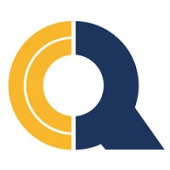
#72: Queensborough Community College
The Nursing Department at Queensborough Community College has an ADN program that starts in both the fall and spring semesters, with an evening option available in the fall. Over the past decade, approximately 80-90 ADN graduates per year have averaged a 91% first-time pass rate on the NCLEX licensure examination. Dual or joint degree programs are also available with Hunter-Bellevue School of Nursing, CUNY School of Professional Studies, and York College. These programs enable Queensborough students to transition seamlessly for their bachelor’s degree with convenient online options. Students may apply for these programs while enrolled in their first clinical nursing course.
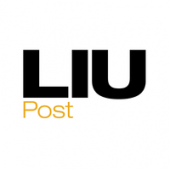
#73: LIU Post
Serving more than 6,000 students, LIU Post is the largest campus of the private Long Island University system. The School of Health Professions and Nursing offers a traditional four-year prelicensure BSN program, an RN-to-BSN degree completion pathway, and an MSN degree for aspiring family nurse practitioners. LIU Post’s nursing curriculum is experiential, with clinical rotations offered at over forty affiliated sites. Students have the opportunity to engage regularly with practicing nurses, experienced nurse practitioners, and doctorally prepared nursing faculty.
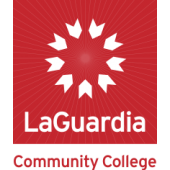
#74: LaGuardia Community College
Founded in 1971, LaGuardia Community College is named after New York City’s New Deal mayor who inspired a generation of immigrants. Located in Queens, the city’s most ethnically diverse borough, students develop a keen awareness of the different cultures they will serve. The college offers a certificate in practical nursing and an AAS degree in registered nursing, with an LPN-to-RN advanced placement option for existing practical nurses. Nursing courses are complemented by campus laboratory experience and clinical practice in local healthcare facilities. LaGuardia nursing students score very well on the NCLEX licensure examinations, including a 93% pass rate for aspiring LPNs and a 97% pass rate for aspiring RNs since 2016. Graduates can take advantage of the college’s comprehensive transfer agreements with more than seventy four-year colleges.
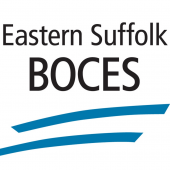
#75: Eastern Suffolk BOCES
Eastern Suffolk BOCES comprises 51 Long Island school districts that serve more than 8,600 adult and high school students. The cooperative is home to the Health Sciences Department, which offers a CNA pathway, and the Eastern Suffolk School of Practical Nursing, which has separate LPN pathways for adults and high school students. The CNA program features classroom learning along with clinical experiences at local nursing homes. Graduates are prepared to take the New York State nurse assistant certification exam. The LPN diploma program offers adults an 11-month fulltime day option and a 17-month parttime evening track, while high school seniors can enroll in a parttime day program. More than 100 adult learners graduate from the LPN program each year, with a solid 84% first-time NCLEX pass rate over the past decade. The high school program graduates an additional two dozen students annually.
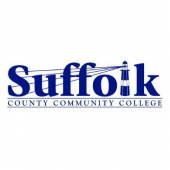
#76: Suffolk County Community College
Suffolk County Community College offers degrees and certificates in approximately 100 fields of study to a student body of 25,000 individuals. The School of Nursing conducts a licensed practical nursing (LPN) certificate program and an associate of science in nursing (ASN) degree program. Both programs are fully accredited by the Accreditation Commission for Education in Nursing. The LPN certificate is offered on the Eastern campus in Riverhead, while the ASN degree provides three program options (daytime, evening, LPN bridge) on both the Ammerman campus in Selden and the Michael J. Grant campus in Brentwood. Student outcomes are excellent in both programs. For example, the graduating class of 2020 scored a 92.3% first-time pass rate on the NCLEX-PN licensure examination and a 93.1% first-time pass rate on the NCLEX-RN licensure examination.
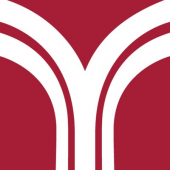
#77: Trocaire College
Trocaire College is a career-oriented Catholic institution in the spirit of the Sisters of Mercy. Trocaire offers certificate, associate degree, and bachelor’s degree programs across 16 fields of study. Indeed, the college’s Catherine McAuley School of Nursing provides a pathway to all three levels of education. The three-semester practical nursing certificate program typically graduates 60-70 students annually, while the four-semester associate of applied science (AAS) degree program graduates between 200 and 250 students each year. Trocaire also conducts a bachelor of science (BS) degree with a major in nursing, specifically designed for working RNs who wish to complete their baccalaureate education in a flexible online environment. Student outcomes are consistently strong. For example, AAS graduates have passed the NCLEX licensure examination at approximately a 75% first-try rate over the past decade.
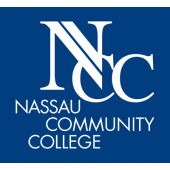
#78: Nassau Community College
Nassau Community College is the largest single-campus community college in New York, serving nearly 20,000 traditional students and 10,000 professional and continuing students. The Nursing Department offers a traditional ADN program as well as a multi-award, dual degree ADN/BSN pathway in partnership with SUNY Empire State College. The traditional ADN program is 84 credit hours in length, while the ADN/BSN option requires 124 credit hours to graduate. Both programs feature general education, nursing coursework, laboratory exercises, and clinical experiences. Nassau Community College graduates more than 100 nursing students each year. Over the past decade, they have averaged a strong 86% first-time pass rate on the NCLEX licensure examination.
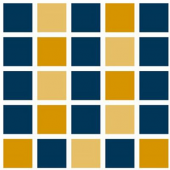
#79: Westchester Community College
Westchester Community College is the county’s largest educational institution with more than 24,000 students. The Nursing Department offers a four-semester, 64-credit associate of applied science (AAS) degree program. Coursework covers a range of critical nursing topics including dosage calculations, healthcare nutrition, and pharmacology. Laboratory exercises and clinical experiences provide exposure to general nursing, mental health nursing, and maternity nursing. Westchester Community College’s AAS program typically graduates 30-50 students annually. These candidates have averaged an impressive 94% pass rate on the NCLEX-RN licensure examination over the past decade. The classes of 2018 (32 out of 32) and 2020 (55 out of 55) enjoyed a perfect 100% pass rate.
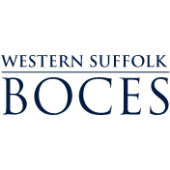
#80: Western Suffolk BOCES
Western Suffolk BOCES has provided career and technical education, special education, and instructional support services to the Long Island school districts for more than seventy years. The school’s practical nursing program began in 1963. Students may attend the program on either a fulltime or part-time basis as they progress through the three curricular levels. Level I covers baseline topics like nursing fundamentals and pharmacology. Level II teaches maternal-child health as well as care through the lifecycle. Level III deepens these topics and introduces community nursing. Throughout their coursework, students rotate through clinical experiences at a variety of local affiliates including Gurwin Jewish Nursing & Rehabilitation Center, Southside Hospital, and Veterans Administration Medical Center. The LPN program at Western Suffolk BOCES graduates approximately 30-40 students annually. Over the past decade, these graduates have averaged an 83% first-time pass rate on the NCLEX-PN licensure examination.
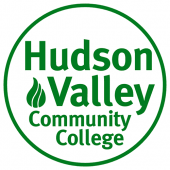
#81: Hudson Valley Community College
Hudson Valley Community College was founded in 1953 as Hudson Valley Technical Institute. The school is part of the 30-member State University of New York community college system. HVCC offers more than eighty degree and certificate programs, including an associate degree in nursing that prepares students to sit for the NCLEX-RN licensure examination. The ADN program graduates 70-80 students in a typical year. These graduates have averaged an impressive 92% first-time NCLEX pass rate over the past decade. Admission to the program is highly selective. The curriculum features classroom instruction, laboratory work, simulation exercises, and hands-on experience at major local healthcare centers. Clinical partners include Albany Memorial Hospital, Albany Stratton VA Medical Center, Capital District Psychiatric Center, and Van Rensselaer Manor Nursing and Rehabilitation. Hudson Valley Community College’s ADN program may be completed in just two years fulltime or four years parttime.

#82: Cayuga-Onondaga BOCES
Cayuga-Onondaga BOCES provides career and professional development programs across nine component school districts. The school’s practical nursing program is an adult education offering that is approved by the New York State Education Department’s Division of Professional Education Services. The LPN program includes 1,210 hours of classroom and clinical instruction. Sample coursework includes growth and development, mental health nursing, and gerontology. Clinical experiences take place in nursing homes like Finger Lakes Center for Living and The Commons on St. Anthony, as well as traditional healthcare facilities like Auburn Community Hospital. Cayuga-Onondaga BOCES graduates approximately 20-30 LPN students each year, with an impressive 92% first-time pass rate on the NCLEX licensure examination over the past decade.
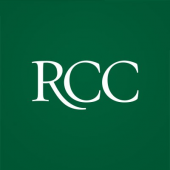
#83: Rockland Community College
Part of the State University of New York community college system, Rockland Community College is the only public college in all of Rockland County. The college offers fifty academic programs, including an associate degree in nursing conducted by the School of Nursing, Health and Wellness. The ADN program prepares students to provide high-quality care to patients in hospitals, nursing homes, and other healthcare settings. The curriculum combines classroom instruction, laboratory work, simulation practice, and clinical experiences across Rockland and its neighboring counties. Approximately 60-90 ADN graduates each year are eligible to sit for the NCLEX licensure examination. Over the past decade, these students have averaged an impressive 92% first-time NCLEX pass rate, including pass rates between 96% and 99% in each of the past four years. Rockland Community College’s ADN program is accredited by the Accreditation Commission for Education in Nursing.
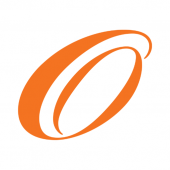
#84: SUNY Orange
Established in 1950, SUNY Orange was the first county-sponsored community college in the State University of New York system. The Nursing Department houses the first and oldest community college nursing degree program in the nation. SUNY Orange’s associate degree in nursing offers both traditional and LPN-to-RN pathways. The school also holds RN-to-BSN articulation agreements with several local institutions, including New York University, Pace University, and Russell Sage College. SUNY Orange nursing students develop patient care skills in a state-of-the-art simulation lab, and they conduct clinical experiences at local hospitals and healthcare facilities. Approximately 100 nursing graduates annually are well prepared for their licensure examinations, with an impressive 92% first-time NCLEX pass rate over the past decade.
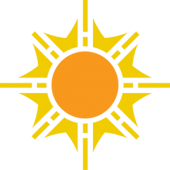
#85: Hostos Community College
Hostos Community College, part of the City University of New York system, serves residents of the South Bronx with more than thirty academic programs. The Department of Allied Health offers a licensed practical nursing certificate and an associate of applied science in registered nursing. Both programs are approved by the New York State Education Department’s Office of the Professions. LPN coursework covers a breadth of important topics like anatomy, physiology, sociology, psychology, pharmacology, clinical nursing, and maternal-child nursing. The AAS program provides day and evening options, both of which require four clinical semesters of coursework. Hostos nursing graduates have historically performed well on their licensure examinations. Over the past decade, LPN and AAS graduates have both averaged an 80% first-time pass rate on the NCLEX-PN and NCLEX-RN exams, respectively.
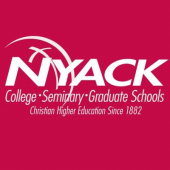
#86: Nyack College
Nyack College is a private institution affiliated with the Christian and Missionary Alliance. The school serves nearly 2,000 students overall, including 570 Alliance Theological Seminary students. The School of Nursing conducts a BSN program that is accredited by the Commission on Collegiate Nursing Education. The program offers instruction and training in a student-centered atmosphere, small class sizes, and the opportunity to travel abroad for clinical trips and missions. A capstone practicum allows students to gain real work experience prior to graduation. Nyack College graduates a close-knit cohort of around twenty nursing students each year. Since the program’s launch, these students have averaged an 80% first-time NCLEX pass rate. The two most recent graduating classes scored 89% and 92% first-time NCLEX pass rates, respectively.
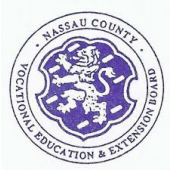
#87: Nassau County Vocational Education & Extension Board
The Vocational Education & Extension Board (VEEB) of Nassau County has offered a practical nursing certificate program for over fifty years. Along with the Board of Cooperative Educational Services (BOCES) in neighboring eastern Suffolk County, the Nassau County VEEB leads one of New York State’s two largest LPN programs, graduating 130-200 students annually. These individuals have averaged an 81% NCLEX pass rate over the past decade, demonstrating the VEEB’s exceptional job at delivering both quantity of graduates and quality of instruction. The LPN program is delivered in three 16-week trimesters from September through August of each academic year, with an option to sit for the state’s Nursing Home Nurse Aide Competency Examination at the conclusion of the first trimester.

#88: Jefferson-Lewis BOCES
The Adult and Continuing Education Department at Jefferson-Lewis BOCES conducts programs across a diverse range of business, career trade, and personal enrichment topics. The school’s career trade offerings include electrical wiring, welding, cosmetology, and health careers. Practical nursing is one of the school’s most popular health career programs, with approximately 50-75 graduates annually. The LPN certificate requires just ten months of fulltime study to complete, and it prepares graduates for the NCLEX licensure examination. Over the past decade, Jefferson-Lewis BOCES students have scored an impressive 83% first-time NCLEX pass rate.

#89: Medgar Evers College
Established in 1970, Medgar Evers College is the youngest four-year college in the City University of New York system. The School of Science, Health & Technology houses the Department of Nursing, which offers three programs approved by the New York State Education Department: a practical nursing certificate, an associate degree in nursing, and an RN-to-BSN completion pathway. All programs boast excellent employment rates. Graduates of the practical nursing and associate degree programs are also well prepared for their respective licensure examinations. For example, the LPN class of 2020 scored an 87.5% first-time NCLEX-PN pass rate, while their ADN counterparts scored a 93.1% first-time NCLEX-RN pass rate.
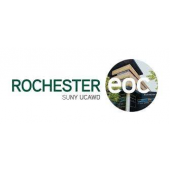
#90: Rochester Educational Opportunity Center
The LPN program at Rochester Educational Opportunity Center is a comprehensive program that relates classroom study to clinical experience. The curriculum, which leads to a certificate in practical nursing, provides training and education on direct patient care in both acute and long-term care facilities. The program is open to high school graduates, and applicants are required to attend an information session prior to scheduling an interview for admission. Upon successful completion of the REOC nursing program, graduates are qualified to take the NCLEX-PN exam for initial LPN licensure.
